Florida has long been a magnet for people seeking a unique lifestyle. Its real estate scene caters to diverse preferences and budgets, offering everything from oceanfront mansions and elegant condos to quaint cottages. The Florida housing market is full of opportunities for buyers and sellers.
Why Is Florida a Popular Place to Buy a Home?
Florida’s popularity as a destination for home hunters can be attributed to many factors. The following are a few of them:
Amazing Scenery
Florida’s landscape is something to behold, from pristine beaches adorned with turquoise waters and white sand to picturesque streets with towering palm trees.
Vibrant Communities
Florida is home to some of the country’s most vibrant and diverse communities. Its bustling city centers, small towns, and charming neighborhoods are teeming with life. They boast cultural attractions, fine dining, shopping, and entertainment.
Year-round Warm Weather
Florida’s weather is also a major draw, especially for those tired of shoveling snow. Its mild winters and tropical summers are perfect for outdoor activities and day-to-day living.
Moderate Cost of Living
Compared to many other states, Florida offers a moderate cost of living. Despite its luxurious lifestyle, housing, healthcare, groceries, and transportation are affordable.
Furthermore, Florida does not have a state income tax, which allows residents to save more of their hard-earned money. Its cost of living is almost equal to the national average, exceeding it by only 1%.
Economic Opportunities
Florida has many jobs in tourism, aerospace, and manufacturing. This makes its economy strong.
Florida is also a great place to do business. This is due to its favorable business environment, such as its proximity to Europe and Latin America. Access to international airports and shipping ports also makes it easy to conduct trade. This makes it appealing to entrepreneurs and established companies.

Factors Driving the Florida Real Estate Market
Several factors drive the Florida housing market, making it a hot spot for homebuyers. These include the COVID-19 pandemic and its aftermath and rising cost of living.
The Impact of the Pandemic on the Florida Real Estate Market
The COVID-19 initially threw a curveball into Florida’s housing market. This was due to lockdowns and economic uncertainty. However, it became a catalyst as the country enjoyed record-low interest rates.
Remote work also became a widely accepted policy, enabling people to choose where they would like to live. This led to increased demand for properties in rural and suburban areas.
The Impact of the Rising Cost of Living in Florida on the Real Estate Market
Inflation is at its highest level in 25 years across the country. Florida has not been spared. This trend has been more pronounced in urban areas, increasing housing prices and living costs. The result is increased demand for residential properties outside cities.
Current Market Conditions
The current market conditions reflect the interplay of the above factors, creating a dynamic environment. This demands careful study and strategic planning from buyers and sellers. Below is an overview of the present state of Florida’s housing market and potential future trajectory.
Florida Home Prices
According to online real estate company Redfin, the median home price in Florida is $401,100. This represents a 1.5% increase from last year. Despite the rise, Florida homes are relatively affordable compared to other booming markets nationwide. For instance, California’s average is $783,300.
They are also lower than the national average of $420,846. Demand is rising, meaning the Florida home prices are expected to increase.
For buyers, this means the Florida real estate market is growing. The competitive prices also benefit sellers, who will gain a return on their Florida real estate investment if they list their properties today.
Inventory Levels
Inventory levels are leaning towards a seller’s market, with about a four-month supply of homes. According to Redfin, there are 136,397 listings on the market, a 1.2% decrease from last year. The number of newly listed homes has also dropped by 21.8% year over year.
The supply isn’t keeping up with demand. This could lead to increased buyer competition, ultimately yielding higher prices.
For sellers, limited inventory means less competition, thus a quicker sale at a favorable price. For buyers, it presents a challenge but also signals future appreciation.
Sales Activity
The sales activity in the Florida housing market has seen a slowdown in the past year. The number of homes sold was down 6.8% year over year. In July this year, 31,889 homes were sold, a considerable decrease from the 34,208 homes sold in July last year.
The gradual decrease in sales activity could indicate potential market cooling. However, given the economic factors and rising demand, it could also suggest a temporary slowdown rather than a long-term trend.
Buyer and Seller Competition
Competition in the Florida housing market is fierce – only 16.5% of homes sold below their list price in July 2023. Last year’s figure was 18.3% for the same month. It means fewer buyers could negotiate a price reduction, reflecting a strong seller’s position.
The market also observed a decline in the number of homes experiencing price drops. Only 26.8% of homes saw a decrease in prices, down from 31.0% in July 2022. Most sellers did not feel the need to lower the cost to attract buyers, highlighting high competition among buyers.
Sale-to-list price was also high, standing at 99.7%. It indicates that most homes sold close to their list prices, reinforcing the idea of a seller’s market.
Buyer competition will likely remain high. This anticipation is due to the rising demand and limited inventory. Sellers, on the other hand, will likely continue enjoying an advantageous market position.
For buyers, the completion means a race against other buyers. It often results in bidding wars and homes selling above the list price. They need to be financially prepared and act swiftly when an opportunity arises.

Florida Real Estate Market Trends
Florida’s housing market is marked by its volatile nature. Several factors influence this, which are a mix of economic and local market trends. Below are some of the current trends in the Florida housing market:
Net Population Migration
Florida is experiencing net population migration, contributing to the dramatic increase in demand for real estate. The state’s population saw an estimated growth of 3.3% from 2020 to 2022. The numbers rose from 21,538,187 in 2020 to an estimated 22,244,823 in 2022.
Rising Mortgage Rates
Mortgage rates have been steadily rising since the pandemic. The average interest rate for a 30-year fixed mortgage is 7.49% as of September 2023.
The rising rates have made it more difficult for buyers to secure mortgages, leading to a slowdown in sales volume.
High Demand for Vacation Homes
Florida’s vacation rental market is booming. Indialantic, Florida, for instance, boasts the best short-term rental market across the country. It is expected to achieve an occupancy rate of 70% in 2023. The trend is also prevalent in other parts of the state. The effect is an increase in Florida home prices.
The Rise of Property Technology
Property technology is revolutionizing Florida’s real estate landscape. This trend is in line with national trends. Virtual tours and 3D mapping have become the norm, providing buyers with a more efficient way to view properties. This is helping facilitate real estate transactions.
The Best Places to Buy a Home in Florida for Different Budgets and Lifestyles
Florida offers various living options to suit different budgets and lifestyles. From the bustling city life in Miami to the tranquil suburban neighborhoods in Altamonte Springs, the state caters to a diverse demographic of homeowners.
Tranquil Lifestyle and a Smaller Budget
Altamonte Springs and Callahan are excellent choices for those with a smaller budget or seeking a slower pace of life. These towns offer affordable homes and a tranquil lifestyle.
Altamonte Springs’s median home price is $198,500, while the cost of living index is 97.4. Callahan offers a median home price of $275,100 with a cost of living index of 102.1.
Vibrant, Cosmopolitan Lifestyle
Miami and Miami Beach are ideal for people seeking a vibrant, cosmopolitan lifestyle. They are famed for their beaches and nightlife. However, home prices are high, with median prices at $560,000 and $550,000 respectively.
If the primary concern is the high life rather than the budget, both cities have many luxury oceanfront properties valued over $1 million.
Affordable Family-friendly Cities
Orlando and Jacksonville are family-friendly cities. They offer an urban lifestyle with a lower cost of living. Orlando is famous for its theme parks, and Jacksonville is the largest city in Florida. Their median home prices are $375,000 and $305,000 respectively.
Buyer’s Guide
Whether you’re a first-time homebuyer or a seasoned real estate investor, purchasing a property in Florida has its challenges. Understand the real estate market trends and fluctuations before buying a home.
What Should Buyers Know Before They Start Shopping for a Home in Florida?
Each neighborhood has unique characteristics and amenities – research to determine which ones align with your lifestyle and budget.
Look into proximity to schools and shopping centers and the neighborhood’s ambiance. Also, be aware of the local tax laws. While there may be no state income tax, property and sales taxes are there, and they vary by city or county.
Buyers should also be aware of Florida’s high cost of home insurance. The state’s average stands at over $4,200 annual insurance cost, while the national average is $1,700. The premium rates have tripled over the last five years, making Florida the state with the highest cost of home insurance.
How Can Buyers Get the Best Deal on a Home?
Work with a qualified Florida real estate agent. They can provide crucial insights, negotiate on your behalf, and help you navigate the closing process. Also, take your time to shop around for the best deal.
Timing is also essential. Many buyers tend to wait until spring or summer to buy a house. Time your purchase in the winter or fall months to avoid competition.
Florida Real Estate Buying Guide
The first step is pre-approval for Florida real estate financing. This step provides an estimate of how much you can afford. It also provides bargaining power. Next, you must choose your preferred location and hire a Florida real estate agent. House hunting will ensue.
You’ll make an offer once you have found a home that meets your needs and budget. If the seller accepts the offer, you’ll enter into closing, typically contingent on a home inspection.
The lender will also request an appraisal to determine the home’s value. The lender will finance the purchase if the appraisal returns at or above the contract price.
Closing is the final step in which you’ll sign all the documents and pay any closing costs. Closing may also involve a title search to confirm the property’s ownership.

Seller’s Guide
While it may be a seller’s market, the Florida real estate market can be tricky for sellers. It calls for careful planning and a strategic approach to get the best deal.
What Should Sellers Know Before They List Their Home in Florida?
As a seller, a successful real estate transaction depends on your preparedness. It also depends on your understanding of the market dynamics.
It’s crucial to clearly grasp your home’s value, the real estate landscape, and the most effective marketing strategies. A qualified Florida real estate agent can provide invaluable guidance throughout this process. They can help you present your home in the best light and negotiate the most favorable terms.
Florida’s weather can be tough on roofs. As such, a roof inspection is of utmost importance to realize the full value of a home. Insurers are also usually cautious about older roofs, with roofs over 15 years old needing an inspection from an authorized inspector and proof of the same before qualifying for insurance.
Knowing Florida real estate laws and your legal obligations is also essential. This will ensure a smooth transaction.
How Can Sellers Get the Most Money for Their Home?
Enhance the curb appeal of your property. Make minor repairs and upgrades where necessary. Also, declutter the space to make it more inviting. This will lead to high offers.
Competitive pricing is also essential. An overpriced home can deter potential buyers. Underpricing, on the other hand, leads to reduced profits. It also leads to a negative perception of the house, discouraging offers. Consult a Florida real estate agent to determine a strategic price based on market conditions.
You will also need to market the home effectively. High-quality photos and compelling descriptions will accentuate the home’s selling points. This will, in turn, invite high bids.
Florida Real Estate Selling Guide
The first step is staging the home. It involves cleaning and decluttering at the most basic level. Other strategies include redecorating, renovations, and depersonalizing. The goal is to make it appealing to a wide range of buyers.
Next is listing the property. You can list it on the local MLS or through a Florida real estate agent. It’s essential to provide accurate information about the home’s condition and features in the listing.
After listing, market the property to potential buyers. Your realtor will help with this. Interested buyers will reach out for a viewing. If they are impressed, they will make an offer.
Once you find the right offer, negotiate to determine the selling price. If both parties are satisfied with the negotiation, you can proceed to the closing stage.
Final Thoughts
The outlook for the Florida housing market is mainly optimistic. Florida’s economic strength and high quality of life will continue to attract prospective buyers. Home prices will also continue to increase.
The key for those looking to sell property is to be prepared and hire a qualified professional. Buyers also need to enlist the help of a professional for success.













